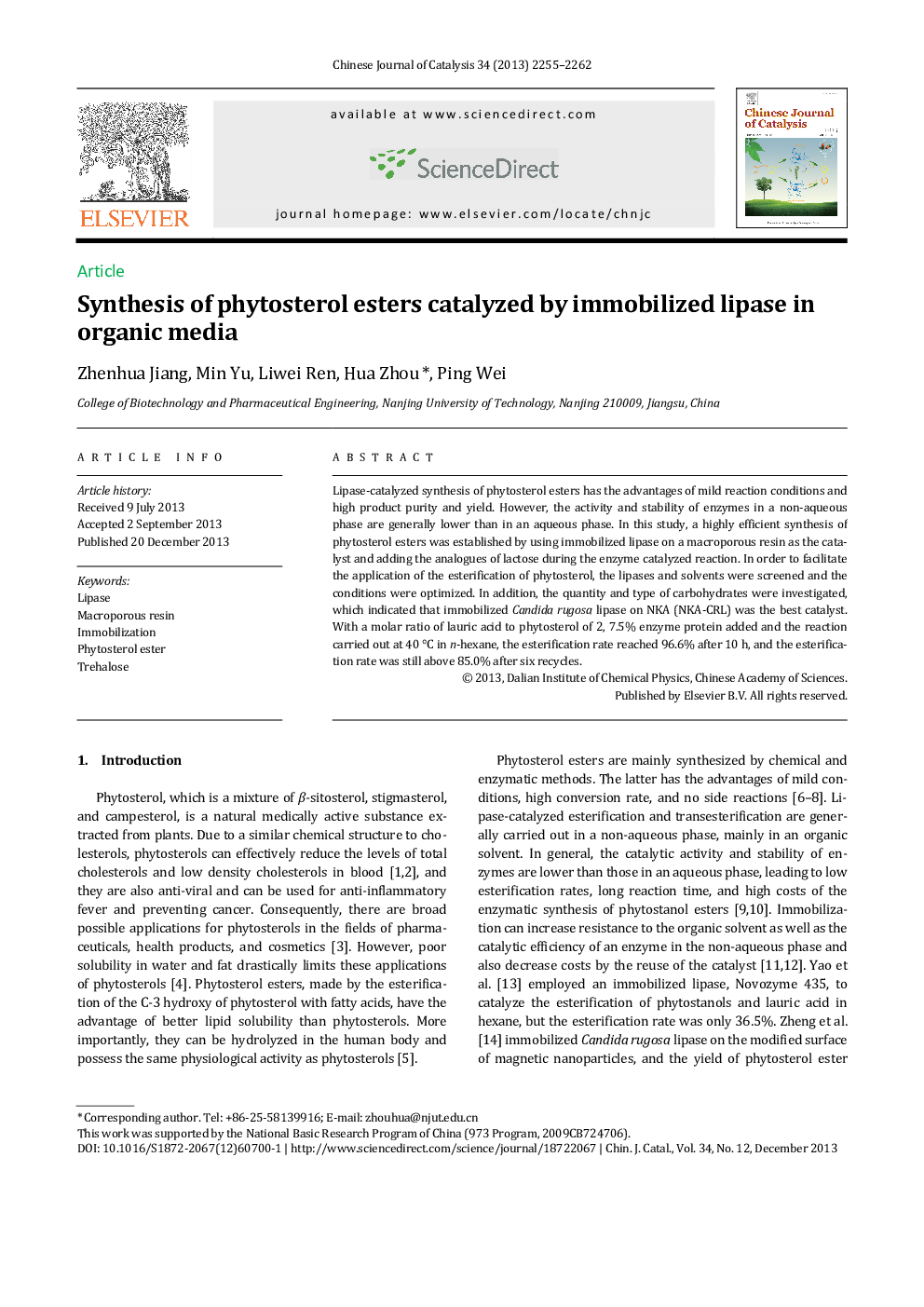| Article ID | Journal | Published Year | Pages | File Type |
|---|---|---|---|---|
| 59860 | Chinese Journal of Catalysis | 2013 | 8 Pages |
Lipase-catalyzed synthesis of phytosterol esters has the advantages of mild reaction conditions and high product purity and yield. However, the activity and stability of enzymes in a non-aqueous phase are generally lower than in an aqueous phase. In this study, a highly efficient synthesis of phytosterol esters was established by using immobilized lipase on a macroporous resin as the catalyst and adding the analogues of lactose during the enzyme catalyzed reaction. In order to facilitate the application of the esterification of phytosterol, the lipases and solvents were screened and the conditions were optimized. In addition, the quantity and type of carbohydrates were investigated, which indicated that immobilized Candida rugosa lipase on NKA (NKA-CRL) was the best catalyst. With a molar ratio of lauric acid to phytosterol of 2, 7.5% enzyme protein added and the reaction carried out at 40 °C in n-hexane, the esterification rate reached 96.6% after 10 h, and the esterification rate was still above 85.0% after six recycles.
Graphical AbstractThe high-efficiency esterification of phytosterols was catalyzed by immobilized lipase in organic media and supplemented by the aqueous solution of trehalose during the enzymatic process.Figure optionsDownload full-size imageDownload as PowerPoint slide
